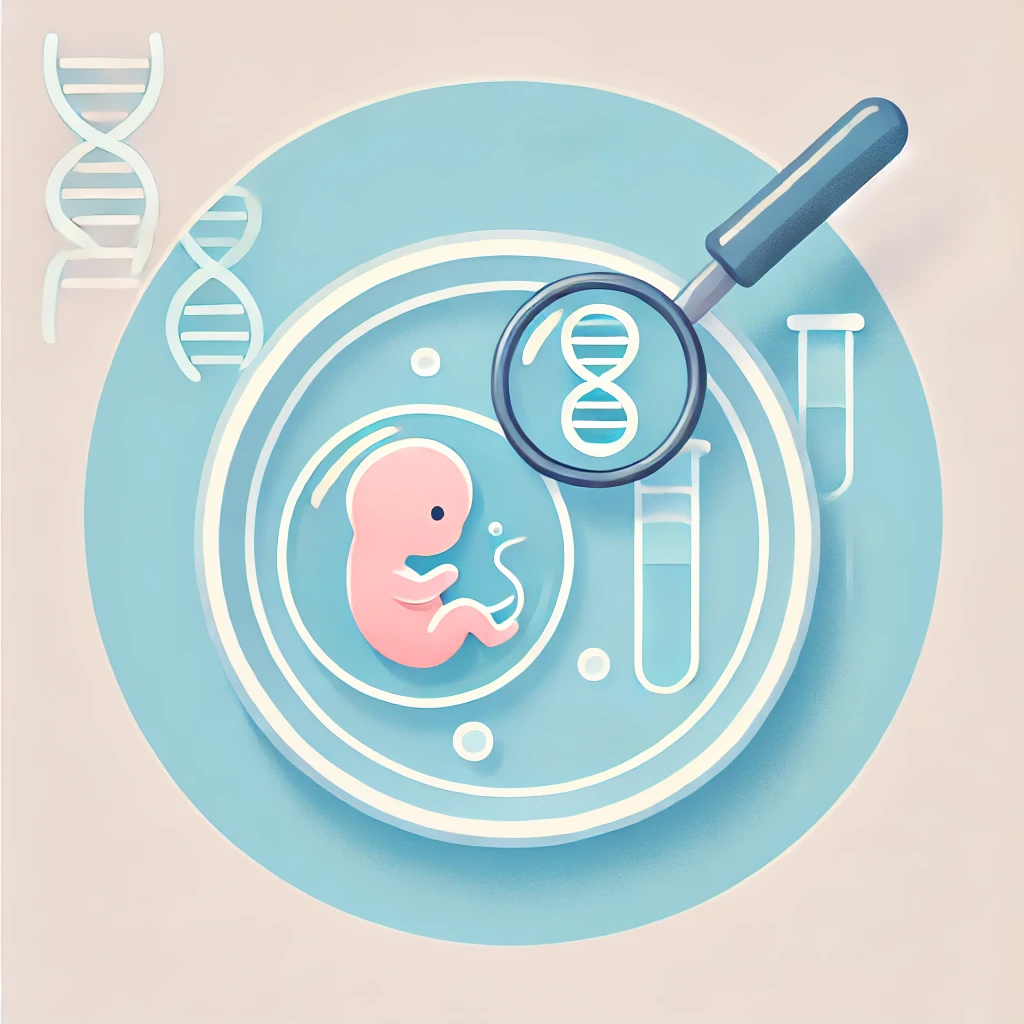Ethical Considerations Surrounding the Use of Preimplantation Genetic Testing (PGT) in IVF


Preimplantation Genetic Testing (PGT) is a powerful tool in assisted reproductive technology (ART) that allows for the genetic analysis of embryos before implantation during in vitro fertilization (IVF). While it offers significant benefits, such as identifying genetic disorders and increasing the chances of a successful pregnancy, PGT raises several ethical questions. These include concerns about the moral status of embryos, societal implications, and equitable access to the technology. This article explores the key ethical considerations surrounding PGT in IVF.
What Is Preimplantation Genetic Testing (PGT)?
PGT involves the genetic analysis of embryos created through IVF. A small number of cells are biopsied from the embryo and tested for various conditions, including:
- PGT for Aneuploidy (PGT-A): Screens for chromosomal abnormalities, such as Down syndrome.
- PGT for Monogenic Disorders (PGT-M): Identifies single-gene disorders like cystic fibrosis or sickle cell anemia.
- PGT for Structural Rearrangements (PGT-SR): Detects chromosomal translocations that may cause infertility or miscarriage.
Ethical Considerations in PGT
1. Moral Status of Embryos
- Concern: The process of PGT often involves discarding embryos that do not meet the desired criteria, raising questions about the moral status of these embryos.
- Debate: Ethical perspectives vary. Some believe that life begins at conception, making the destruction of embryos morally problematic, while others view embryos as potential life without full moral status.
- Balance: Clinics and parents must navigate these differing viewpoints when deciding how to handle unused embryos.
2. Eugenics Concerns
- Concern: The use of PGT to select embryos based on non-medical traits, such as physical appearance or intelligence, raises fears of “designer babies” and eugenics.
- Implications: Such practices could reinforce societal biases and discrimination, leading to ethical dilemmas about what constitutes a “desirable” or “undesirable” trait.
- Regulation: Many countries have strict regulations prohibiting the use of PGT for non-medical purposes.
3. Accessibility and Equity
- Concern: PGT is expensive, often costing thousands of dollars in addition to IVF costs. This creates a barrier for low-income families, exacerbating inequalities in reproductive healthcare.
- Impact: Wealthier individuals may have greater access to advanced reproductive technologies, leading to societal disparities in genetic health outcomes.
- Potential Solutions: Policymakers and healthcare providers must work to make PGT more accessible through subsidies or insurance coverage.
4. Psychological Impact on Parents
- Concern: Parents face significant emotional and ethical pressure when deciding which embryos to implant, particularly when testing reveals potential health issues or other genetic traits.
- Impact: This can lead to stress, guilt, or regret, particularly if the decision does not lead to a successful pregnancy or if unforeseen conditions arise.
- Support: Psychological counseling should be an integral part of the PGT process to help parents navigate these decisions.
5. Unintended Consequences
- Concern: The widespread use of PGT could lead to societal changes, such as prioritizing certain genetic traits, which may reinforce existing inequalities or create new ones.
- Examples:
- Decreased acceptance of individuals with disabilities.
- Pressure on parents to choose “perfect” embryos, even for non-medical traits.
- Long-Term Considerations: Societal attitudes and policies must adapt to ensure ethical use of PGT.
Benefits vs. Ethical Challenges
| Benefits | Ethical Challenges |
|---|---|
| Increases chances of successful pregnancy | Potential for discarding embryos with disabilities. |
| Reduces the risk of genetic disorders | Risk of promoting societal biases through trait selection. |
| Empowers parents with informed decisions | May increase psychological stress for parents. |
| Enhances success rates of IVF | High costs limit accessibility, creating inequity. |
Current Regulations and Guidelines
Many countries have established guidelines to regulate the use of PGT, aiming to balance its benefits with ethical concerns:
- Medical Use Only: In most regions, PGT is permitted only for identifying serious genetic conditions, not for non-medical trait selection.
- Embryo Handling: Strict rules govern the freezing, storage, and disposal of embryos.
- Counseling Requirements: Many clinics mandate genetic counseling to help parents understand the implications of PGT results.
Conclusion
While PGT offers transformative possibilities in reproductive medicine, it also presents significant ethical challenges. Questions about the moral status of embryos, the risk of eugenics, accessibility, and societal impacts require careful consideration. By fostering open dialogue among patients, healthcare providers, policymakers, and ethicists, we can ensure that PGT is used responsibly and equitably.
Contact Us if you have questions about PGT, IVF, or navigating the ethical aspects of fertility treatments. Our team is here to guide you through every step of the journey.
FAQs
-
Can PGT guarantee a healthy baby?
- No, while PGT reduces the risk of genetic conditions, it cannot guarantee a healthy baby due to other environmental and developmental factors.
-
Is PGT available for all IVF patients?
- PGT is typically recommended for couples with a history of genetic conditions or recurrent pregnancy loss.
-
Can PGT be used to choose a baby’s gender?
- In some countries, gender selection is allowed for family balancing, but it is prohibited in many regions due to ethical concerns.
-
Does PGT harm embryos?
- PGT involves a minor biopsy, which is generally safe, but there is a small risk of damage to the embryo.
-
What happens to embryos not selected for transfer?
- Unused embryos may be frozen, donated, or discarded, depending on the couple’s decision and clinic policies.



